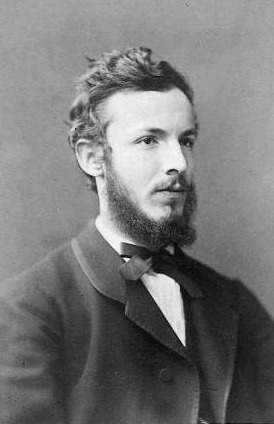A diagonal argument, in mathematics, is a technique employed in the proofs of the following theorems:
Its category-theoretical general formulation is given by Lawvere's fixed-point theorem.

In mathematics, a cardinal number, or cardinal for short, is what is commonly called the number of elements of a set. In the case of a finite set, its cardinal number, or cardinality is therefore a natural number. For dealing with the case of infinite sets, the infinite cardinal numbers have been introduced, which are often denoted with the Hebrew letter (aleph) marked with subscript indicating their rank among the infinite cardinals.

In mathematics, the cardinality of a set is a measure of the number of elements of the set. For example, the set contains 3 elements, and therefore has a cardinality of 3. Beginning in the late 19th century, this concept was generalized to infinite sets, which allows one to distinguish between different types of infinity, and to perform arithmetic on them. There are two approaches to cardinality: one which compares sets directly using bijections and injections, and another which uses cardinal numbers. The cardinality of a set may also be called its size, when no confusion with other notions of size is possible.

Georg Ferdinand Ludwig Philipp Cantor was a mathematician who played a pivotal role in the creation of set theory, which has become a fundamental theory in mathematics. Cantor established the importance of one-to-one correspondence between the members of two sets, defined infinite and well-ordered sets, and proved that the real numbers are more numerous than the natural numbers. Cantor's method of proof of this theorem implies the existence of an infinity of infinities. He defined the cardinal and ordinal numbers and their arithmetic. Cantor's work is of great philosophical interest, a fact he was well aware of.
In the philosophy of mathematics, constructivism asserts that it is necessary to find a specific example of a mathematical object in order to prove that an example exists. Contrastingly, in classical mathematics, one can prove the existence of a mathematical object without "finding" that object explicitly, by assuming its non-existence and then deriving a contradiction from that assumption. Such a proof by contradiction might be called non-constructive, and a constructivist might reject it. The constructive viewpoint involves a verificational interpretation of the existential quantifier, which is at odds with its classical interpretation.

In set theory, Cantor's diagonal argument, also called the diagonalisation argument, the diagonal slash argument, the anti-diagonal argument, the diagonal method, and Cantor's diagonalization proof, was published in 1891 by Georg Cantor as a mathematical proof that there are infinite sets which cannot be put into one-to-one correspondence with the infinite set of natural numbers. Such sets are now known as uncountable sets, and the size of infinite sets is now treated by the theory of cardinal numbers which Cantor began.
In logic and mathematics, diagonalization may refer to:
Errett Albert Bishop was an American mathematician known for his work on analysis. He is best known for developing constructive analysis in his 1967 Foundations of Constructive Analysis, where he proved most of the important theorems in real analysis using "constructivist" methods.

In mathematical set theory, Cantor's theorem is a fundamental result which states that, for any set , the set of all subsets of the power set of has a strictly greater cardinality than itself.
The simple theorems in the algebra of sets are some of the elementary properties of the algebra of union, intersection, and set complement of sets.
In mathematical logic, the diagonal lemma establishes the existence of self-referential sentences in certain formal theories of the natural numbers—specifically those theories that are strong enough to represent all computable functions. The sentences whose existence is secured by the diagonal lemma can then, in turn, be used to prove fundamental limitative results such as Gödel's incompleteness theorems and Tarski's undefinability theorem.
In mathematical logic, the theory of infinite sets was first developed by Georg Cantor. Although this work has become a thoroughly standard fixture of classical set theory, it has been criticized in several areas by mathematicians and philosophers.
A timeline of mathematical logic; see also history of logic.
Mathematical Cranks is a book on pseudomathematics and the cranks who create it, written by Underwood Dudley. It was published by the Mathematical Association of America in their MAA Spectrum book series in 1992 (ISBN 0-88385-507-0).

Cantor's first set theory article contains Georg Cantor's first theorems of transfinite set theory, which studies infinite sets and their properties. One of these theorems is his "revolutionary discovery" that the set of all real numbers is uncountably, rather than countably, infinite. This theorem is proved using Cantor's first uncountability proof, which differs from the more familiar proof using his diagonal argument. The title of the article, "On a Property of the Collection of All Real Algebraic Numbers", refers to its first theorem: the set of real algebraic numbers is countable. Cantor's article was published in 1874. In 1879, he modified his uncountability proof by using the topological notion of a set being dense in an interval.
In mathematics, Bernstein's theorem may refer to:
Cantor's theorem is a fundamental result in mathematical set theory.
In mathematics, Lawvere's fixed-point theorem is an important result in category theory. It is a broad abstract generalization of many diagonal arguments in mathematics and logic, such as Cantor's diagonal argument, Russel's paradox, Gödel's first incompleteness theorem and Turing's solution to the Entscheidungsproblem.